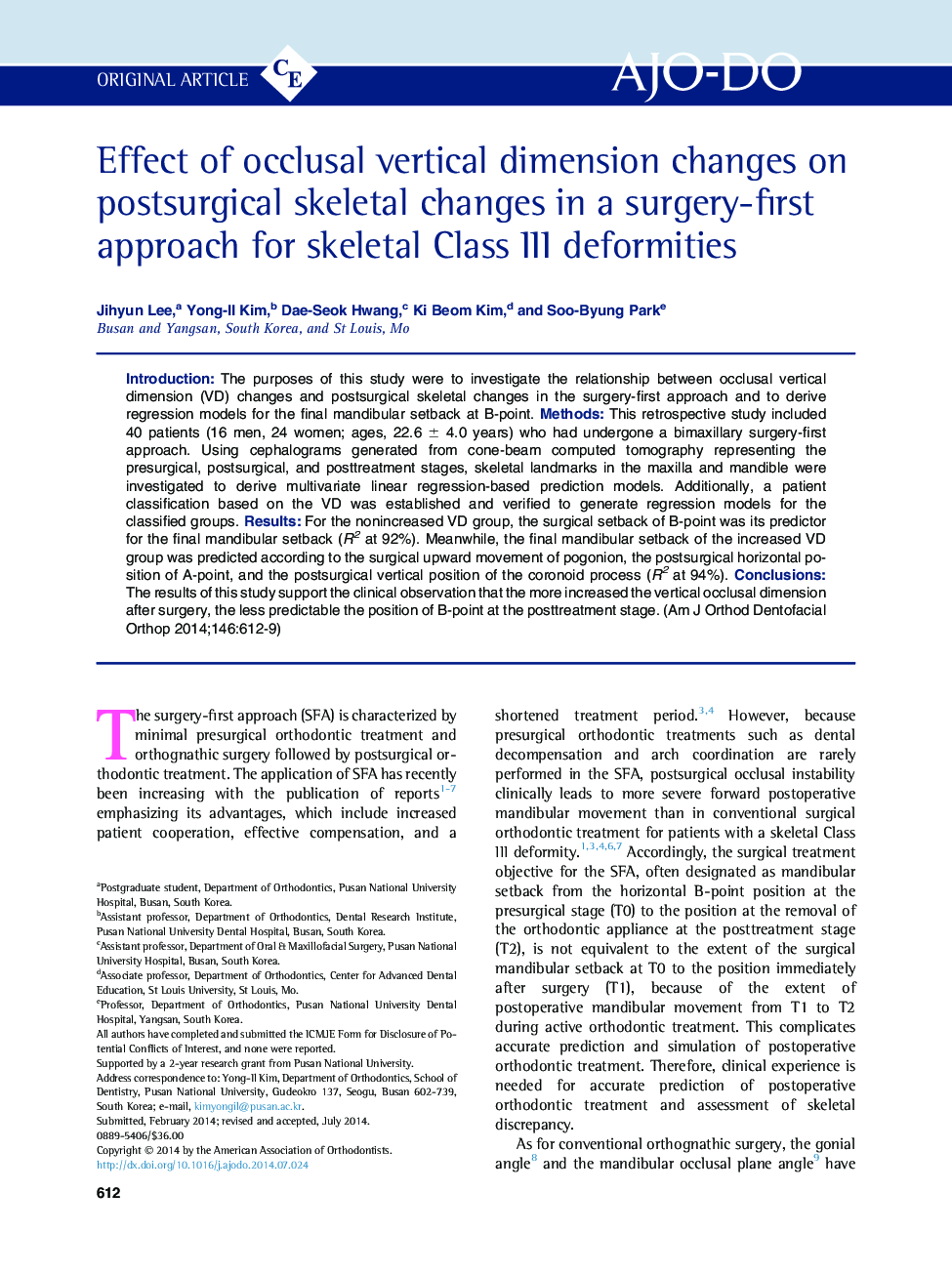| کد مقاله | کد نشریه | سال انتشار | مقاله انگلیسی | نسخه تمام متن |
|---|---|---|---|---|
| 3116243 | 1582696 | 2014 | 8 صفحه PDF | دانلود رایگان |

• We used CBCT-generated cephalograms with the superimposition.
• We investigated the relationship between vertical dimension changes and postsurgical changes in the surgery-first approach.
• The more increased the vertical dimension after surgery, the less predictable the B-point position.
IntroductionThe purposes of this study were to investigate the relationship between occlusal vertical dimension (VD) changes and postsurgical skeletal changes in the surgery-first approach and to derive regression models for the final mandibular setback at B-point.MethodsThis retrospective study included 40 patients (16 men, 24 women; ages, 22.6 ± 4.0 years) who had undergone a bimaxillary surgery-first approach. Using cephalograms generated from cone-beam computed tomography representing the presurgical, postsurgical, and posttreatment stages, skeletal landmarks in the maxilla and mandible were investigated to derive multivariate linear regression-based prediction models. Additionally, a patient classification based on the VD was established and verified to generate regression models for the classified groups.ResultsFor the nonincreased VD group, the surgical setback of B-point was its predictor for the final mandibular setback (R2 at 92%). Meanwhile, the final mandibular setback of the increased VD group was predicted according to the surgical upward movement of pogonion, the postsurgical horizontal position of A-point, and the postsurgical vertical position of the coronoid process (R2 at 94%).ConclusionsThe results of this study support the clinical observation that the more increased the vertical occlusal dimension after surgery, the less predictable the position of B-point at the posttreatment stage.
Journal: American Journal of Orthodontics and Dentofacial Orthopedics - Volume 146, Issue 5, November 2014, Pages 612–619